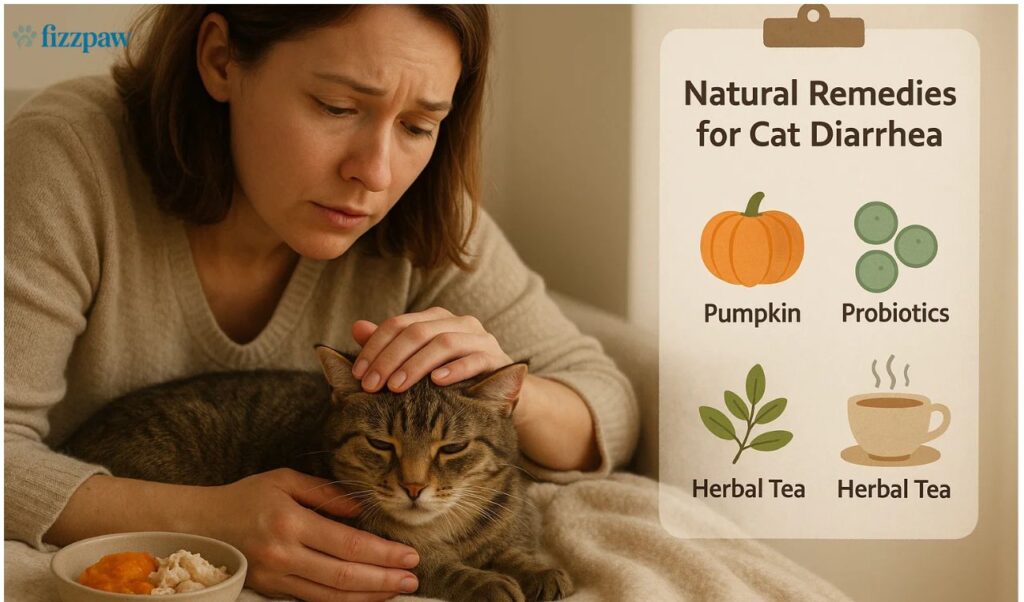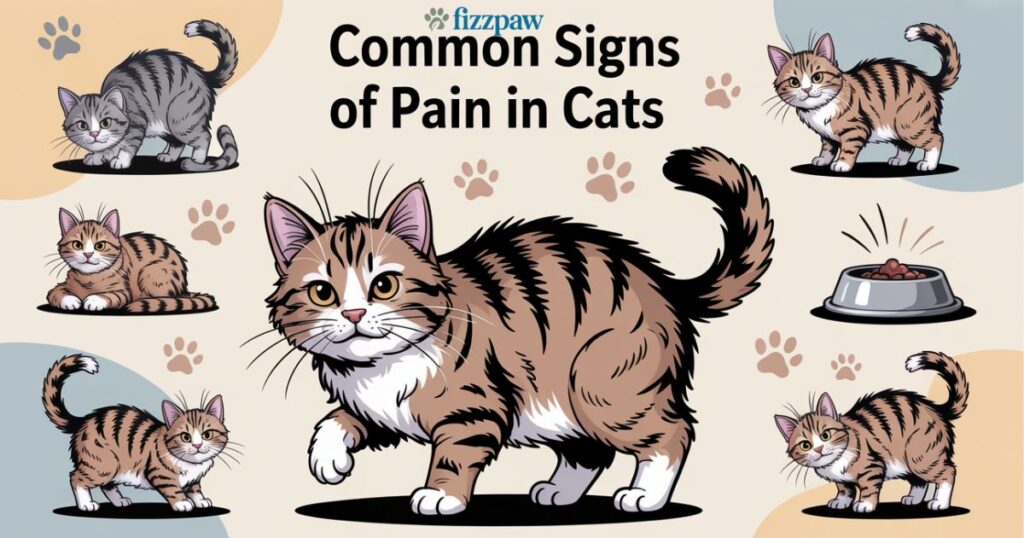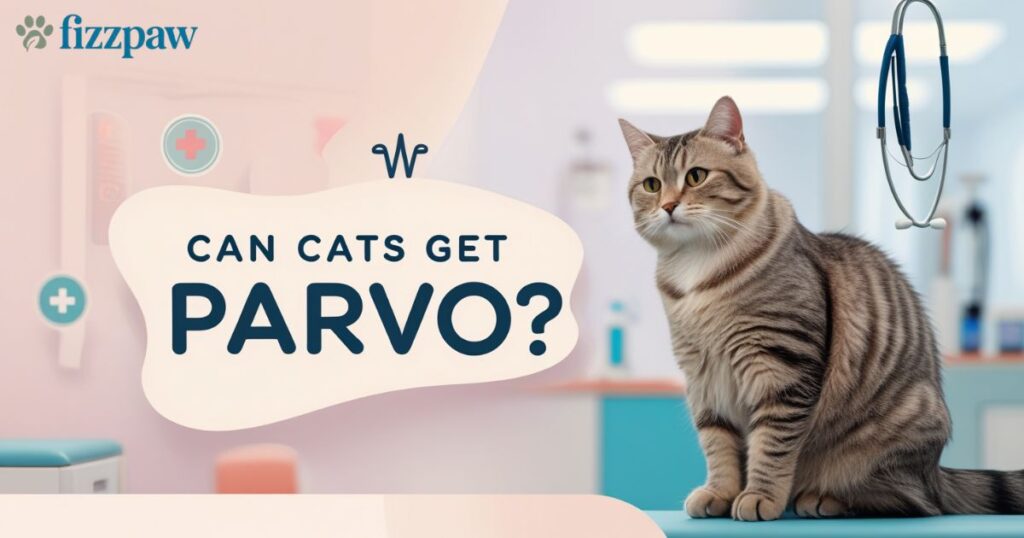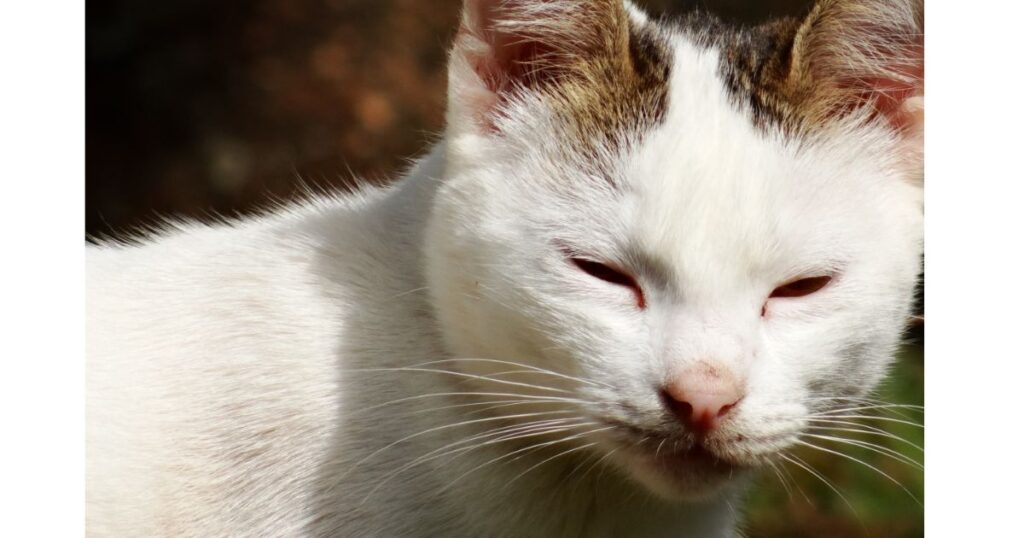Natural Remedies for Cat Diarrhea can offer gentle yet effective relief when your feline friend is feeling unwell. Diarrhea in cats is common and can be triggered by a variety of reasons, from food sensitivities to cat stress and digestive health. While occasional loose stools may not seem serious, they can quickly lead to dehydrated cat symptoms and impact overall cat gut health.
That’s why understanding when and how to act with safe, home remedies for cat diarrhea is so important. In this guide, we’re going to help you find the best natural remedies for your sick cat, including diet adjustments and hydration suggestions to help your cat feel better without rifling through various medications or expensive treatments.
What Is Cat Diarrhea and Why Does It Happen
Diarrhea in cats is the rapid movement of ingested material through the intestines resulting in the frequent passage of loose or watery stools. It can be short-term, or acute, or last for weeks or months, and it’s called chronic. It’s usually an indication that something isn’t going quite right in your cat’s digestive tract.
Common causes of diarrhea in cats included:
- Food allergies or intolerances
- Sudden diet changes (cat diet change side effects)
- Parasites, such as Giardia or worms
- Infections (viral, bacterial, or fungal)
- Stress can upset your cat’s digestion and cause diarrhea.
- Underlying diseases like feline inflammatory bowel disease (IBD), feline exocrine pancreatic insufficiency (EPI), or hyperthyroidism and diarrhea in cats
Fact: A stressed cat’s gut acts just as a person’s does when it is under stress. Stress can upset the gut of a cat, resulting in diarrhoea or vomiting.
For mild pain or discomfort, you may also explore our guide to natural pain relief options.
Can you treat your cat’s diarrhea at home, or is it time to call the vet?
Some mild feline digestive disturbance may resolve itself within 24 to 48 hours, particularly if your cat is alert, eating small quantities, and acting normally. In that case, you can handle cat diarrhea at home by serving a bland diet for cats, maintaining hydration, and allowing rest for the digestive system. One cause of sudden, short term diarrhea in cats may be an abrupt change in diet, such as from a treat or human food. In such situations, home remedies for cat diarrhea—such as boiled chicken for cats and plain pumpkin—can promote relief and healing.
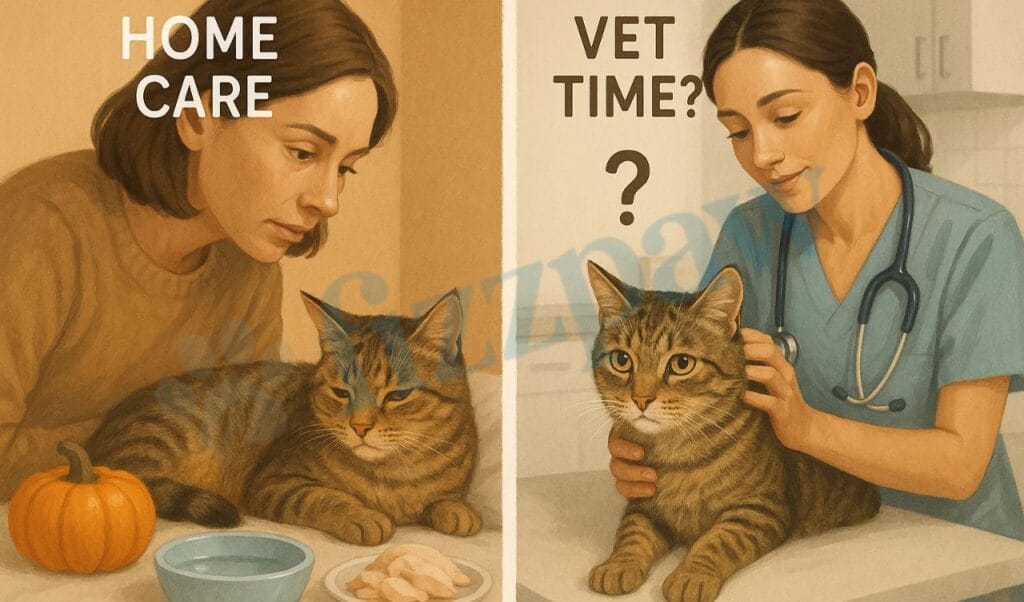
But not all cases are safe to handle at home. Don’t treat diarrhea at home if it lasts over two days, includes vomiting, or shows signs of dehydration like sunken eyes or lethargy. Bloody stool, black, tarry-looking faeces or smelly liquid diarrhoea can serve as warning signs of a serious underlying cause of cat diarrhoea, such as feline chronic inflammatory bowel disease (IBD), parasite infestation, or hyperthyroidism and cat diarrhea. Kittens, old/senior or cats with others medical conditions are particularly prone to cat diarrhea and may require prompt veterinary care. As with any illness, if symptoms progress, be sure to consult your veterinarian, as diarrhea care in cats is important in order to recover. According to the Cornell Feline Health Center, diarrhea can be a symptom of several underlying conditions.
Home care is safe for cat diarrhea if your cat is:
- Still eating and drinking
- Alert and not lethargic
- Not vomiting excessively
- Not losing weight rapidly
- Not a kitten (under 6 months) or senior (over 12 years)
When to See a Vet for Cat Diarrhea:
| Red Flag Symptoms | Action |
| Blood in stool | Vet visit ASAP |
| Severe vomiting and diarrhea in cats | Emergency |
| Signs of dehydration in cats | Immediate care |
| Weight loss or poor coat | Vet exam |
Never delay treatment if symptoms worsen. Identifying the underlying cause of feline diarrhea is critical. Learn what foods to avoid during diarrhea from ASPCA’s toxic food list.
Best Natural Remedies for Cat Diarrhea
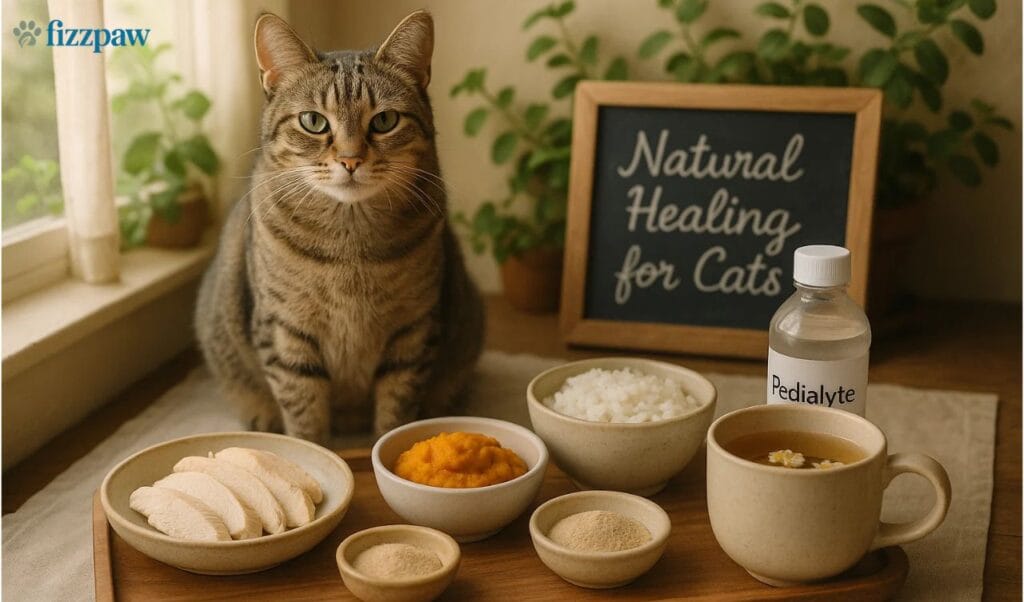
You don’t always need medication. These natural treatments for feline diarrhea can be safe and soothing:
Bland Diet Therapy (Boiled Chicken, Pumpkin, Bone Broth)
A bland diet for cats soothes the stomach and supports healthy stool formation.
- Boiled chicken for cats (no skin or bones)
- Plain pumpkin (not pie filling!) – rich in fibre
- Bone broth – boosts hydration and electrolytes
Feed small amounts, 3–4 times daily. Avoid raw food or complex proteins during diarrhea episodes.
Probiotics & Digestive Enzymes
Probiotics restore cat’s gut health and balance intestinal bacteria. Look for:
- FortiFlora
- Plain Greek yogurt (tiny spoon only)
- Probiotics for cats with diarrhea
Digestive enzymes like Metamucil for cats (psyllium-based) may help if approved by your vet.
Slippery Elm Bark, Psyllium Husk, Chamomile Tea
These home remedies for cat diarrhea have been used for centuries.
- Slippery elm for pets: Soothes inflamed intestines
- Psyllium husk for cats: Adds fiber and absorbs excess water
- Chamomile tea (cooled): Calming for the gut and mood
Always confirm the correct dosage with your vet before giving any remedy.
Rice Water or Goat Milk for Soothing the Gut
- White rice for cat diarrhea (boiled and strained water only)
- Raw, unpasteurized goat milk contains natural probiotics and is easier to digest than cow’s milk
Tip: Mix rice water with a bit of pumpkin for a fiber-boosted hydrating blend.
Hydration Support with Electrolyte Broths
Dehydration is dangerous. Cats with diarrhea lose fluid rapidly.
Use:
- Unflavored Pedialyte (under vet supervision)
- Electrolyte water for cats
- Homemade bone broth (unsalted)
Watch for dehydrated cat signs like sunken eyes, dry gums, and skin that doesn’t snap back. Constipation often occurs alongside diarrhea. Here’s our complete natural relief guide for cat constipation.
Infographic – Safe vs. Unsafe Foods During Diarrhea
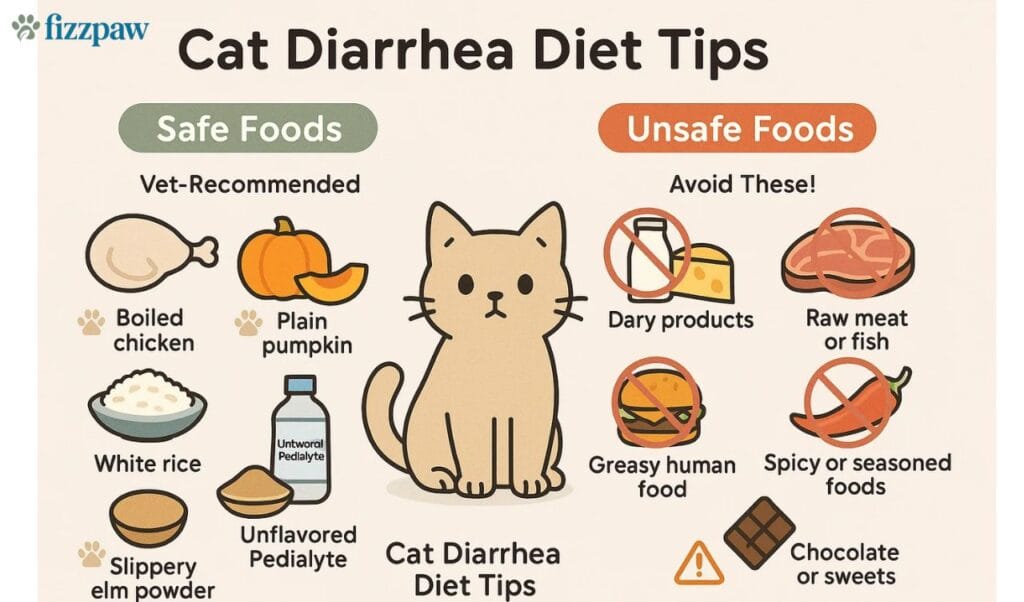
Safe Foods
- Boiled chicken (boneless) – gentle protein
- Plain pumpkin – adds fiber, firms stool
- White rice – easy to digest
- Bone broth – supports hydration in cats
- Slippery elm for pets – soothes the gut
- Unflavored Pedialyte – replaces lost electrolytes
❌ Unsafe Foods
- Milk, cheese, dairy – causes more upset
- Raw meat – risk of bacteria
- Fatty foods – hard to digest
- Human treats or meds – often toxic
Stick to a bland diet for cats and avoid new or spicy foods.
Quick Table – Cat Diarrhea Symptoms → Home Treatment Plan
| Symptom | What It Means | Suggested Home Treatment | Vet Visit Needed? |
| Mild, soft stool (1–2 times/day) | Minor digestive upset | Bland diet for cats with boiled chicken for cats and white rice for cat diarrhea | No, monitor at home |
| Soft stool with strong odor | Possible food allergy or intolerance | Try natural treatment for feline diarrhea, eliminate new foods | Monitor for 24–48 hrs |
| Diarrhea + occasional vomiting | Feline digestive upset or dietary indiscretion | Underlying cause of feline diarrhea is possible | Monitor closely |
| Diarrhea + lethargy or appetite loss | Could be cat stress and digestive health related | Provide supportive care for diarrhea in cats and reduce stress triggers | Yes, if no improvement |
| Watery diarrhea + dehydration signs | Risk of severe fluid loss | Administer electrolyte water for cats like unflavored Pedialyte | Immediate vet visit |
| Diarrhea lasting more than 3 days | The underlying cause of feline diarrhea is possible | Stop home remedies, seek diagnosis for feline IBD or EPI | Mandatory vet evaluation |
| Diarrhea + blood or mucus | Could indicate intestinal motility disorders, parasites, or worse | Avoid all food, seek help immediately | Urgent vet care needed |
How to Feed a Cat with Diarrhea: Schedules and Portion Tips
Cats with diarrhea need a very specific, regulated diet and feeding schedule so that they can recover quickly without upsetting their digestive system further.If your adult cat is healthy, start by pausing food for 12–24 hours to let the stomach settle. This brief fasting period gives your gut a rest and the inflammation time to down-regulate. But never fast kittens — they can become hypoglycemic very fast.
After fasting, a bland cat food diet should be given in small, frequent feedings. The best foods are boiled chicken for cats with diarrhea, plain pumpkin, and white rice for cat diarrhea, all of which are easy to digest and calm an upset stomach. Offer 1-2 tablespoons per feeding every 3-4 hours.
Then, over 2 to 3 days, increase the amount gradually and feed not so frequently. Remember to keep your cat as hydrated as possible during this period. Give cats electrolyte water, also known as a balanced electrolyte solution for cats, and for this, unflavored Pedialyte is your best option (the others have bad ingredients in them), especially if your cat is exhibiting dehydrated cat symptoms such as dry gums, sunken eyes, or lethargy.
Feeding Schedule Example (After 12–24 Hr Fast):
| Day | Food Type | Portion Size | Frequency |
| Day 1 | Boiled chicken + plain pumpkin | 1–2 tbsp | Every 3–4 hours |
| Day 2 | Same as above | 2–3 tbsp | Every 4–5 hours |
| Day 3 | Add 25% of regular cat food | 2–3 tbsp | Every 5 hours |
| Day 4–5 | Gradually return to normal food | Normal meal portions | 2–3 times per day |
Always observe your cat closely. If vomiting and diarrhea in cats continue, or if you notice a worsening condition, stop the feeding plan and seek veterinary help immediately. Just like with skin allergies, certain food choices can impact gut health. Read our guide on hypoallergenic cat food options.
Natural Remedies for Kittens with Diarrhea
Kittens are fragile and dehydrate fast.
Safe steps:
- Goat milk or electrolyte fluid (kitten-safe)
- Bland diet if old enough (e.g., boiled chicken for cats + pumpkin)
- Monitor weight daily
- Always consult a vet for supportive care for diarrhea in cats under 6 months
Recovery Diet: Transitioning Back to Regular Food
Gradually mix your cat’s old food with the bland food over 5–7 days.
| Day | New Food | Old Food |
| Day 1–2 | 75% | 25% |
| Day 3–4 | 50% | 50% |
| Day 5–6 | 25% | 75% |
| Day 7+ | 0% | 100% |
A slow food transition for cats avoids re-triggering diarrhea.
How to Prevent Diarrhea in Cats Naturally
A stable healthy diet is our first line of defense against diarrhea, and as usual, we should seek to feed the best diet possible. Rapid changes in the diet can lead to an upset stomach. Never change foods abruptly; always slowly over 7–10 days to prevent vomiting and diarrhea in cats.
Aid digestive health with probiotics for cats with diarrhea, and natural fibers, such as psyllium husk for cats or slippery elm for pets. These help maintain normal stools.
Keep your cat hydrated. Offer electrolyte water for cats during hot weather or when they are sick. Minimize stress, as stress and cat digestive health go hand-in-hand.
Lastly, visit the vet regularly. Diseases such as IBD, parasites or hyperthyroidism can lead to diarrhea. Early detection is key.
Regular wellness visits aid in catching lifelong issues such as intestinal motility disorders or food sensitivities.
FAQ – Natural Treatment for Cat Diarrhea
1. What home remedy can I give my cat for diarrhea?
You can offer plain boiled chicken with white rice or pumpkin puree—both are gentle and help firm up stools.
2. What can I feed my cat to stop diarrhea?
Feed a bland diet like boiled chicken, rice, or vet-approved gastrointestinal wet food in small, frequent portions.
3. What stops diarrhea fast naturally?
Plain canned pumpkin (not pie filling) or slippery elm bark powder can soothe the gut and slow diarrhea naturally.
4. How do you rehydrate a cat with diarrhea?
Encourage water intake with fresh bowls, offer electrolyte solutions (like unflavored Pedialyte), or use a pet-safe water fountain.
5. How long should I wait before calling a vet?
A: If symptoms last more than 48 hours or worsen, visit your vet.
Final Thoughts: Trust Nature, But Know When to Get Help
You now have a full toolbox of natural remedies for cat diarrhea from homemade cat food for diarrhea to probiotics and hydration tricks. The great majority of mild cases can be cared for at home.
But keep in mind: When in doubt or when symptoms worsen, always consult your vet. Natural remedies are most effective when you understand your cat’s overall health picture and appreciate his or her individual needs.
🩺 Expert Insight
Dr. Sarah Wooten, DVM, emphasizes:“A bland diet and probiotics are often all you need for mild diarrhea, but persistent symptoms mean a deeper problem.”

